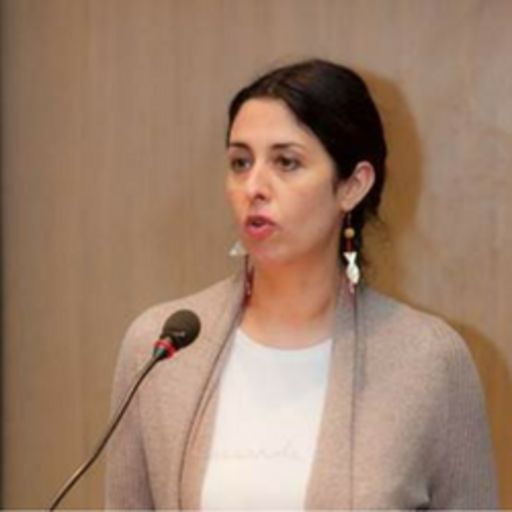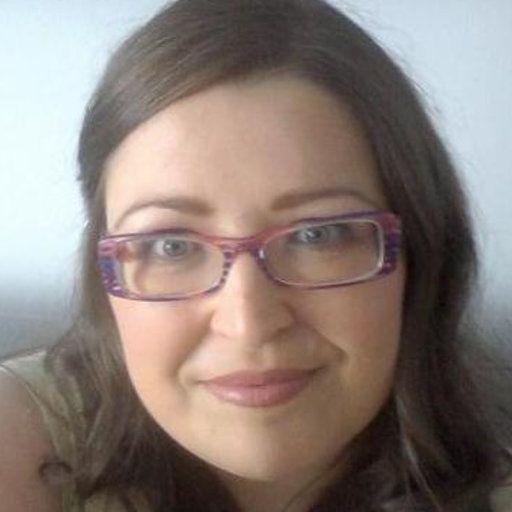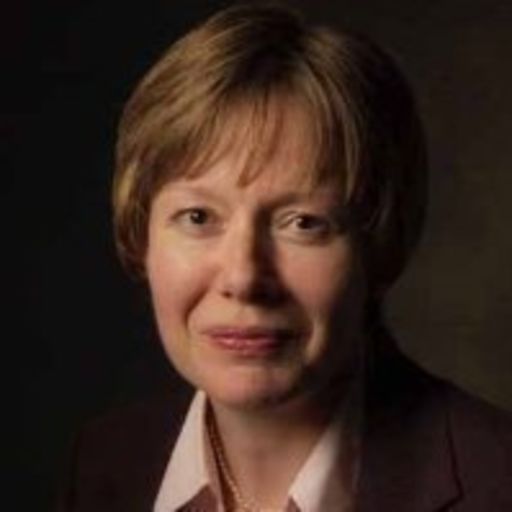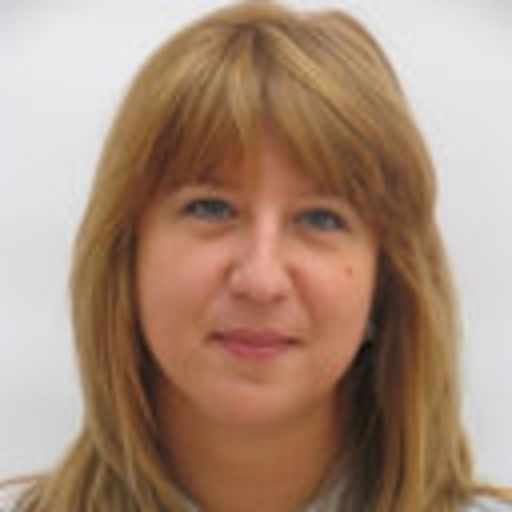Identifying Bibliographic Families in Records on Scholarly Monographs
Aim
The aim of this study is to explore the possibilities to use the notion ‘bibliographic family’ in book metrics for scholarly books in the social sciences and humanities. Our focus is the most basic bibliometric indicator, the number of books, which is often used in research evaluation and funding allocation settings. Here we follow the Functional Requirements for Bibliographic Records (FRBR) and acknowledge that books belong to bibliographic families. This means that a scholarly monograph is conceptualised as a 'work' with multiple expressions (e.g. translations) and manifestations (paperback, hardback, e-book, etc.). Within the context of research evaluation the fact that a scholarly monograph has been translated into several languages or it has been published in several editions, can be treated as an indication of the scholarly value of the monograph. Hence the notion 'bibliographic family' leads to a more detailed and for research evaluation crucial contextual information that is not available when using raw publication counts.
Methods
This exploratory bibliometric study is based on metadata for scholarly monographs retrieved from two national bibliographic databases for research output: VABB-SHW in Belgium (Flanders) and CROSBI in Croatia (more on the databases in 1). The set of metadata is limited to scholarly monographs in SSH published in 2016 (nFlanders=101, nCroatia=176). This is an on-going pilot study for a study that covers a longer timeframe (2000-2017) and metadata records from multiple national bibliographic databases for research output. In addition, we consult WorldCat.org (OCLC) to identify additional ISBN related to monographs (bibliographic families) in the analysed datasets. This step was required since a preliminary exploration of metadata for scholarly monographs in the two national databases showed that these metadata are insufficient to identify bibliographic families. In further steps we follow the approach used by Zuccala and colleagues (2). First, we delineate a list of unique ISBNs. Second, we search and retrieve in WorldCat.org all related ISBNs. Finally, we explore relationships between the related ISBNs.
Results and Discussion
In the first phase we sought for related ISBNs in WorldCat.org using a list of ISBNs retrieved from the two national databases. Coverage of ISBNs in WorldCat.org turned out to be uneven with respect to the two databases. While for VABB-SHW, 95 % (n=96) ISBNs could be identified in OCLC, for CROSBI it was only 63 % (n=111). For these records we identified, in total, 155 unique additional ISBNs for the VABB-SHW dataset and 35 unique additional ISBNs for the CROSBI dataset. On average each scholarly work (the original ISBN as recorded in the national databases) was represented with 2.6 (Md=2) ISBNs for the VABB-SHW set and 1.3 (Md=1) ISBNs for the CROSBI set. These numbers include the original ISBN. The total number of ISBNs varied from one to fourteen in the VABB-SHW set and to six in the CROSBI set. From the VABB-SHW set an example of a scholarly work represented with 14 ISBNs is ‘World city network’ by Peter J. Taylor. This work was first published in 2003 in four different manifestations: as paperback, hardcover, and two e-book versions. Two other e-book versions were published in 2004 followed by a new edition in 2015 in multiple manifestations (e.g. e-book versions in 2015 and 2016). For one of the e-book versions a record was created in VABB-SHW. From the CROSBI set an example of a scholarly work represented with 6 ISBNs is ‘Green jobs for sustainable development’ by Ana-Maria Boromisa, Sanja Tišma and Anastasya Raditya Ležaić. All the 6 ISBNs appear to be different manifestations of the same scholarly work. However, sufficient metadata are not available for all ISBNs to fully describe what each of the ISBNs stands for. This limits the amount of detail for descriptions of entities in the identified bibliographic families.
Our analysis shows that the usefulness of this notion in book metric context is highly dependent on the availability of rich metadata. Furthermore, the availability of metadata appears to vary by national context. While for the dataset from VABB-SHW nearly all ISBNs could be identified in OCLC, this is not the case for CROSBI. Aside from these limitations, it is evident that the notion ‘bibliographic family’ adds additional contextual information for book metrics. When data on additional ISBNs are available at all, they do occasionally reveal that a single scholarly work has over time had different expressions and manifestations. For example, a scholarly monograph which in standard settings would be represented with a bare number ‘1’, can now be accompanied with information that this is a revised version of a monograph published in year X and that Y number of translations are to be published in year Z. Overall, however, the identification of bibliometric families for even such small sets of bibliographic records as explored here turns out to be a time and work-consuming task thus limiting the usability of this approach for book metrics.
Conclusion
The main conclusion from this study is two-fold. On the one hand, it is evident that for book metrics the notion ‘bibliographic family’ leads to richer contextual information that is not available with basic publication counts. On the other hand, the differences in data availability for VABB-SHW and CROSBI data show that the currently available bibliographic metadata for scholarly monographs are insufficient to incorporate the notion ‘bibliographic family’ in book metrics. A possible way to overcome this is to explore how to enrich records for scholarly records using other bibliographic resources. This includes resources such as national bibliographies, publisher records, and international services such as, for example, Google Books and GoodReads.
 Gwen FranckEIFL, Lithuania
Gwen FranckEIFL, LithuaniaGwen Franck is consultant and facilitator, interested in the ‘hands on’ aspects of Open Science such open access publishing, self-archiving… More →
 Victoria TsoukalaEuropean Commission
Victoria TsoukalaEuropean CommissionVictoria Tsoukala works as a Policy Officer in the European Commission, DG RTD.G2: Open Science, in Secondment from her position at the… More →
 Adriaan van der WeelLeiden University
Adriaan van der WeelLeiden UniversityAdriaan van der Weel is Bohn extraordinary professor of Modern Dutch Book History at the University of Leiden and lecturer in Book and… More →
 Sami SyrjämäkiFederation of Finnish Learned Societies
Sami SyrjämäkiFederation of Finnish Learned SocietiesDr Sami Syrjämäki is the head of publications at the Federation of Finnish Learned Societies. His expert work focuses on science policies… More →
 Thed van LeeuwenLeiden University
Thed van LeeuwenLeiden UniversityThed van Leeuwen is a senior researcher at the Centre for Science and Technology Studies (CWTS) of Leiden University in the Netherlands. As… More →
 Andrei RostovtsevDissernet, Russia
Andrei RostovtsevDissernet, RussiaProf Andrei Rostovtsev is a Russian physicist, doctor of physical and mathematical sciences. He graduated from the National Research Nuclear… More →
 Vanessa ProudmanSPARC Europe
Vanessa ProudmanSPARC EuropeVanessa Proudman is Director of SPARC Europe; she is working to make Open the default in Europe. Vanessa has 20 years’ international… More →
 Ana MarušićUniversity of Split
Ana MarušićUniversity of SplitAna Marušić is Professor of Anatomy and Chair of the Department of Research in Biomedicine and Health at the University of Split School of… More →
 Alen VodopijevecRuđer Bošković Institute
Alen VodopijevecRuđer Bošković InstituteMSc Alen Vodopijevec obtained his diploma in 2003 at the University of Zagreb, Faculty of Social Sciences and Humanities, and currently is… More →
- Anita Pavić Pintarić
 Damien VannsonThunken
Damien VannsonThunkenBuilder at heart, driven by the satisfaction of turning shower thoughts and back-of-the-envelope plans into full-fledged, user-friendly… More →
 Danijel GudeljUniversity of Zagreb
Danijel GudeljUniversity of ZagrebDanijel Gudelj is M.A. of sociology and croatology, graduated at Centre for Croatian Studies, University of Zagreb. Currently, he is a… More →
 Blaž RebernjakUniversity of Zagreb
Blaž RebernjakUniversity of ZagrebBlaž Rebernjak was born in Zagreb in 1983, where he finished primary and secondary schools. In 2007 he obtained his MA and in 2013 his PhD… More →
- Evgenia Arh
 Drahomira CuparUniversity of Zadar
Drahomira CuparUniversity of ZadarDrahomira Cupar, Phd, is an assistant professor at the University of Zadar, Department of Information Sciences. She obtained her PhD in… More →
 Elizabeth WagerSideview
Elizabeth WagerSideviewElizabeth (Liz) Wager, PhD is a freelance consultant and trainer who has worked on six continents. She chaired the Committee on Publication… More →
 Filip HorvatUniversity of Rijeka
Filip HorvatUniversity of RijekaFilip Horvat is a librarian at the Faculty of Civil Engineering, University of Rijeka. He received his Master’s degree in Information… More →
 Goranka MitrovićNational and University Library in Zagreb
Goranka MitrovićNational and University Library in ZagrebGoranka Mitrović, senior librarian, works at the National and University Library in Zagreb, Croatia (NUL) since 1993. Her research interest… More →
 Draženko CeljakUniversity Computing Centre
Draženko CeljakUniversity Computing CentreMSc Draženko Celjak is the head of data services at SRCE – University of Zagreb University Computing Centre. He coordinates and leads the… More →
 Iva Melinščak ZlodiUniversity of Zagreb
Iva Melinščak ZlodiUniversity of ZagrebIva Melinščak Zlodi works as an e-resources librarian at the Library of the University of Zagreb Faculty of Humanities and Social Sciences… More →
 Ivana MajerUniversity of Zagreb
Ivana MajerUniversity of ZagrebIvana Majer graduated from the Faculty of Humanities and Social Sciences at the University of Zagreb, and got her degree in Croatian… More →
 Irena KranjecUniversity of Zagreb
Irena KranjecUniversity of ZagrebIrena Kranjec works as a subject librarian for information sciences at the Library of the Faculty of Humanities and Social Sciences… More →
 Jasminka MaravićCARNet Department for Education Support
Jasminka MaravićCARNet Department for Education SupportJasminka Maravić is Project Manager at CARNet Department for Education Support. During her 14 years in CARNet she has been involved in… More →
 Krešimir ZauderUniversity of Zadar
Krešimir ZauderUniversity of ZadarKrešimir Zauder was born in Zagreb, Croatia in 1980. He graduated Information science and English language and literature in 2006. In 201… More →
 Jure TriglavCollaborative Knowledge Foundation
Jure TriglavCollaborative Knowledge FoundationJure is the lead developer at the Collaborative Knowledge Foundation, where he develops the PubSweet framework and supports its community. More →
- Josipa Zetović
 Kristina RomićNational and University Library in Zagreb
Kristina RomićNational and University Library in ZagrebKristina Romić works at the Acquisition Department, National and University Library in Zagreb, Croatia. She graduated from the Faculty of… More →
- Ksenija Baždarić
 Ksenija Švenda RadeljakUniversity of Zagreb
Ksenija Švenda RadeljakUniversity of ZagrebKsenija Švenda Radeljak is employed at the Library of Department of Social Work at the Faculty of Law University in Zagreb. The areas of her… More →
 Linda SīleUniversity of Antwerp
Linda SīleUniversity of AntwerpLinda Sīle is doctoral student at the University of Antwerp within the Centre for R&D Monitoring (ECOOM). My current work spans somewhat… More →
 Lovela Machala PoplašenUniversity of Zagreb
Lovela Machala PoplašenUniversity of ZagrebLovela Machala Poplašen is a head librarian at the Andrija Štampar Library, School of Public Health, School of Medicine, University of… More →
- Ljiljana Poljak
 Luc BorutaThunken
Luc BorutaThunkenPh.D. in computational linguistics, natural language processor, interested in linked data and linguistic diversity. In previous lives, Luc… More →
 Ljiljana Jertec MusapSRCE – University Computing Centre, University of Zagreb
Ljiljana Jertec MusapSRCE – University Computing Centre, University of ZagrebMSc Ljiljana Jertec is a librarian and computer specialist at SRCE – University of Zagreb University Computing Centre. She has a Master’s… More →
 Lucija VejmelkaUniversity of Zagreb
Lucija VejmelkaUniversity of ZagrebLucija Vejmelka is an assistant professor at the University of Zagreb, Faculty of Law, Department of Social Works, where she leads the… More →
- Marijana Briški Gudelj
 Marijana GlavicaUniversity of Zagreb
Marijana GlavicaUniversity of ZagrebMSc Marijana Glavica works as a systems librarian at the University of Zagreb Faculty of Humanities and Social Sciences Library, where she… More →
 Marina Cvitanušić BrečićCroatian Agency for Science and Higher Education
Marina Cvitanušić BrečićCroatian Agency for Science and Higher EducationMarina Cvitanušić Brečić works at the Analytics and Statistics Department of the Croatian Agency for Science and Higher Education (ASHE… More →
 Marina GrubišićCroatian Agency for Science and Higher Education
Marina GrubišićCroatian Agency for Science and Higher EducationMarina Grubišić is the head of the Analytics and Statistics Department of the Croatian Agency for Science and Higher Education (ASHE). She… More →
 Matko MarušićUniversity of Split
Matko MarušićUniversity of SplitMatko Marušić is Professor Emeritus at the University of Split, Split, Croatia. He was a Professor at Medical Schools (in Zagreb and Split… More →
- Nicolas Robinson-Garcia
- Neven Pintarić
 Paulin RibbeOpenEdition
Paulin RibbeOpenEditionPaulin Ribbe is Project Manager for the OPERAS infrastructure at OpenEdition (France, Marseille - CNRS, AMU, EHESS, Avignon Univ.). He holds… More →
 Radovan VranaUniversity of Zagreb
Radovan VranaUniversity of ZagrebBorn in Zagreb, Croatia. Primary and secondary education completed in Zagreb. Croatia. Graduated information sciences and the English… More →
 Rafaelly StavaleUniversity of Brasília
Rafaelly StavaleUniversity of BrasíliaRafaelly Stavale is a current student of Nursing at Universidade de Brasília – UnB. She has recently completed the Principles and Practices… More →
 Olga KirillovaAssociation of Science Editors and Publishers (ASEP), Moscow, Russia
Olga KirillovaAssociation of Science Editors and Publishers (ASEP), Moscow, RussiaOlga V. Kirillova, Candidate of Science (Engineering, 2004), the President of the Association of Science Editors and Publishers (ASEP, since… More →
 Pierre MounierOpenEdition
Pierre MounierOpenEditionPierre Mounier is deputy director of OpenEdition , a comprehensive infrastructure based in France for open access publication and… More →
 Rodrigo CostasLeiden University
Rodrigo CostasLeiden UniversityRodrigo Costas is an experienced researcher in the field of information science and bibliometrics. With a PhD in Library and Information… More →
 Tihana RubićUniversity of Zagreb
Tihana RubićUniversity of ZagrebTihana Rubić is an assistant professor at the Department of Ethnology and Cultural Anthropology, Faculty of Humanities and Social Sciences… More →
 Vicko TomićUniversity of Split
Vicko TomićUniversity of SplitVicko Tomić is a research assistant at the Department of Research in Biomedicine and Health at the University of Split School of Medicine… More →
 Vanessa FairhurstCrossref
Vanessa FairhurstCrossrefVanessa Fairhurst joined Crossref in 2017 and is based at the Oxford office. As Community Outreach Manager, her role involves working… More →
 Želimir KurtanjekUniversity of Zagreb
Želimir KurtanjekUniversity of ZagrebŽelimir Kurtanjek is a retired professor of chemical engineering with an interest in biotechnology, biostatistics and big data analytics… More →
 Vlatka BožičevićUniversity of Zagreb
Vlatka BožičevićUniversity of ZagrebVlatka Božičević gratuated from Religious Pedagogy and Catechetics at the Catholic Faculty of Theology University of Zagreb and the… More →
- Željka Salopek
 Zoran VelagićUniversity of Osijek
Zoran VelagićUniversity of OsijekZoran Velagić is a professor of book history and publishing studies at the University of Osijek, Faculty of Humanities and Social Sciences… More →